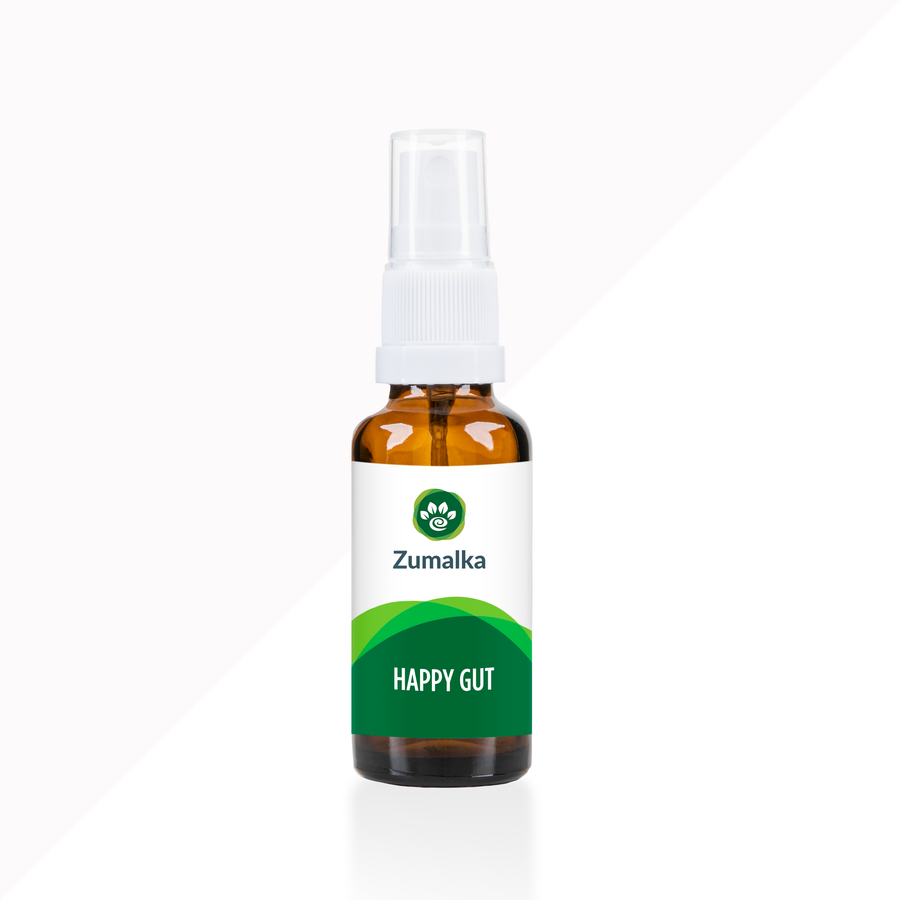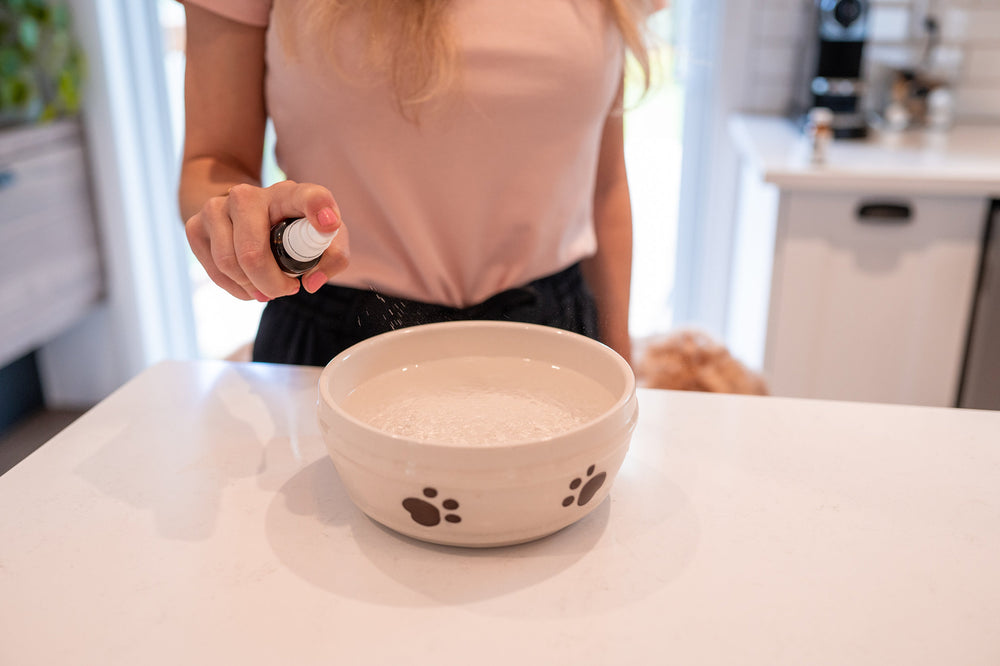How to Treat Dog Diarrhea at Home: Vet-Approved Natural Solutions
Managing a dog’s diarrhea can be challenging, but in many cases, you don’t need to rush to the vet. In this article, we’ll cover key information about this health problem, including natural treatments like specially formulated dog foods for mild cases.
A Vet Explains Common Causes of Diarrhea in Dogs

Before we dive into natural treatments for your dog's diarrhea, let's first review some of the common causes of this condition. For the purposes of this article, we will focus on acute canine diarrhea, rather than its chronic counterpart.
Acute watery diarrhea can appear suddenly—one day your dog is perfectly healthy, and the next, you may notice loose stool. Acute diarrhea typically lasts less than 14 days, whereas chronic diarrhea persists for more than 14 days. The following are the most common causes:
- Secretory diarrhea can occur as a result of bacterial infections, particularly for raw food-fed dogs. Certain bacteria, such as Clostridia and E. coli, can produce excessive enterotoxins, leading to abnormal electrolyte secretion and causing diarrhea. Viral infections can also be possible culprits.
- Osmotic diarrhea occurs when certain nutrients, such as carbohydrates, are retained in the intestines. This retention leads to fermentation and bacterial overgrowth. Diarrhea can also be triggered as a side effect of certain drugs, such as laxatives or improperly used human medications.
- Increased mucosal permeability, which can result from severe inflammation, ulcers, or erosion in the intestines, may trigger acute diarrhea in dogs. Common wellness issues that cause this type of diarrhea include inflammatory bowel disease (IBD), hookworm infections, and intestinal lymphoma.
Dog Diarrhea Home Remedies You Can Use
You may be wondering, "What home remedies can I give my dog for diarrhea?" Before starting any home treatment, it’s crucial to ensure your dog isn’t seriously ill. I always recommend that dog owners seek veterinary attention if:
- Your dog is vomiting and has bloody diarrhea (or even severe diarrhea)
- Your dog appears lethargic and weak
- Your dog is refusing food
- Your dog appears to be in pain
If any of the mentioned symptoms are present, it is crucial to seek veterinary care immediately. Diarrhea and vomiting can lead to significant fluid loss and electrolyte imbalances, which can severely impact your pet's health.
Pet parents, always remember that canine diarrhea is always a very serious concern, no matter the severity of your pet's symptoms. It is also essential to send your canine companion to a veterinary hospital if you observe the possibility of a painful blockage.
Viral infections and kidney disease may also be culprits in diarrhea in dogs
Severe diarrhea in dogs accompanied by vomiting may require IV fluid therapy and other supportive medications for proper treatment. However, if your dog has mild diarrhea and is otherwise healthy—showing no vomiting and remaining bright, alert, and active—then you can try the following home remedies.
#1. Start with a Bland Diet.

A bland diet is a soft, highly digestible diet that is intentionally low in fiber, fat, and protein, and high in carbohydrates. It can be very effective in managing diarrhea in dogs, especially when used short-term to help ease digestive upset.
No need to get your hands on "specially formulated" dog foods
Typically, bland diets consist of a single carbohydrate source, such as rice, and a single lean protein source, like boiled chicken breast without skin or bones. Boiling the meat allows the fat to rise to the surface of the water, where it can be easily skimmed off, making the meal even gentler on your dog’s digestive system.
Because bland diets are low in fiber, stool production slows down, resulting in less frequent defecation. These diets are designed to give the digestive system a rest and promote the formation of normal stools.
Here’s a basic bland diet recipe for dogs experiencing diarrhea.
- To prepare the rice, boil 1 part white rice with 3 parts water for 25 to 30 minutes, or until the rice is soft and easily crushed. Plain cooked white rice is essential here.
- To prepare the chicken, remove any visible fat and boil it in water for 10-15 minutes, or until fully cooked and easily pulled apart. Boiling the meat helps the fat rise to the top, making it easier to skim off.
- You can also use other lean protein sources such as low-fat boiled hamburger (ground beef) or hard-boiled or scrambled eggs (avoiding butter or oil). When using these alternatives, ensure no extra fats are added.
- Make sure you mix 2 cups of a carbohydrate source (such as rice) with ½ cup of a lean protein source for each meal. Canned plain pumpkin (and not pumpkin pie filling!) can also be used for this application.
Bland diets can be prepared in advance and safely stored in the refrigerator for up to 48 hours. Additionally, batch-cooked bland diets can be frozen in portion-sized servings to significantly reduce preparation time. Remember to thaw and warm the frozen diet before feeding.
Feeding a bland diet for dog diarrhea
Estimate about 25% of your dog's daily diet and feed that amount of its bland counterpart every 6 to 8 hours. Smaller dogs will need smaller portions, while larger dogs will require more, but be sure to maintain the same carbohydrate-to-lean-protein ratio.
Continue feeding this for 4 to 5 days, without offering any treats, bones, or other food sources, until the stools become firm.
#2. Hydration, Hydration, Hydration!
When dogs have mild diarrhea, they lose a lot of electrolytes and water, putting them at risk of dehydration and worsening their condition. This is why it's crucial to ensure your dog stays properly hydrated.
Here are some ways to ensure your dog gets enough water and electrolytes:
- Provide ad lib access to cold water or ice chips.
- Offer coconut water, which is rich in potassium and other electrolytes.
- Low-sodium chicken broth can help keep your dog hydrated.
- Pedialyte, a human electrolyte supplement, can be offered to dogs suffering from acute diarrhea (be sure to use the unflavored, low-sodium version).
#3. Use Probiotics to Stabilize the Gut.
The digestive tract of a dog contains trillions of microbes (gut bacteria) that work together to maintain a healthy digestive system. These bacteria ferment fiber, producing short-chain fatty acids like butyrate, which play a crucial role in supporting gut health and reducing inflammation.
These acids not only provide anti-inflammatory benefits to the gastrointestinal tract but also offer antioxidant effects. Introducing the right probiotics to your dog's diet can help promote healthy microbiota, improving gut health and potentially speeding up the resolution of diarrhea.
#4. Check Out Pectin and Kaolin Supplements.
There are numerous pectin and kaolin products available at pet stores that can naturally help your dog recover from diarrhea at home. They can also help align your dog's bowel movements to a more ideal setting.
Pectin and Kaolin help boost the digestive tract during a dog's diarrhea
Kaolin is a type of clay that absorbs bacteria in the intestines, while pectin, a naturally occurring substance found in fruits and vegetables, acts as a binding agent. Pectin helps firm up the stool by binding to bacteria and stool, aiding in the resolution of diarrhea.
#5. Integrate Psyllium Husk to Your Dog's Diet.

Psyllium is an excellent source of concentrated fiber, offering a unique balance of soluble and insoluble, as well as fermentable and non-fermentable, fiber. If you find an unflavored version without added sugar, it adds virtually no calories, allowing for more flexibility in its use.
Psyllium husk won't only improve stool consistency (helping to firm it up) and alleviate mild intestinal distress, but also support a healthier bacterial balance in the colon. Dosage of psyllium husk: Give 1 to 4 teaspoons mixed with food orally every 12 to 24 hours.
#6. Deworming Therapy!
Parasites are a common cause of acute diarrhea in dogs, and they will not go away on their own. In many cases, a veterinarian may prescribe fenbendazole, a broad-spectrum dewormer, for dogs suffering from diarrhea.
This treatment is safe, easy to administer, and highly effective at eliminating parasites without causing harm during diarrhea in dogs. They can even be used with medications prescribed for kidney disease but with the go signal from your vet.
#7. HAPPY GUT Supports Digestive Health and Relieves Diarrhea in Dogs.
HAPPY GUT is the ultimate solution for improving your pet’s gut health. Targeting inflammation in the gastrointestinal tract, as well as symptoms like vomiting and diarrhea, this homeopathic remedy is ideal for both cats and dogs. It promotes healthy digestion and elimination, soothing digestive upsets and helping your pet return to normal quickly.
#8. PROBIOPET Encourages Digestive Harmony.
PRIOBIOPET is a premium natural probiotic designed by homeopaths to promote gut health and create a balanced digestive environment. With a diverse array of over a trillion beneficial bacterial species, this homeopathic alternative is the ideal choice for keeping your dog’s digestive tract healthy, balanced, and thriving.







Dear Louise, start with a very small serving of cooked pumpkin, working up to no more than 1 teaspoon (per 10 lbs. of body weight). For small dogs, that max amount might mean ½ teaspoon per day, while large dogs can safely eat 1-4 tablespoons daily. We have sent you an email with a short questionnaire to better help target your pet’s needs.
How much pumpkin should a puppy get?
Leave a comment